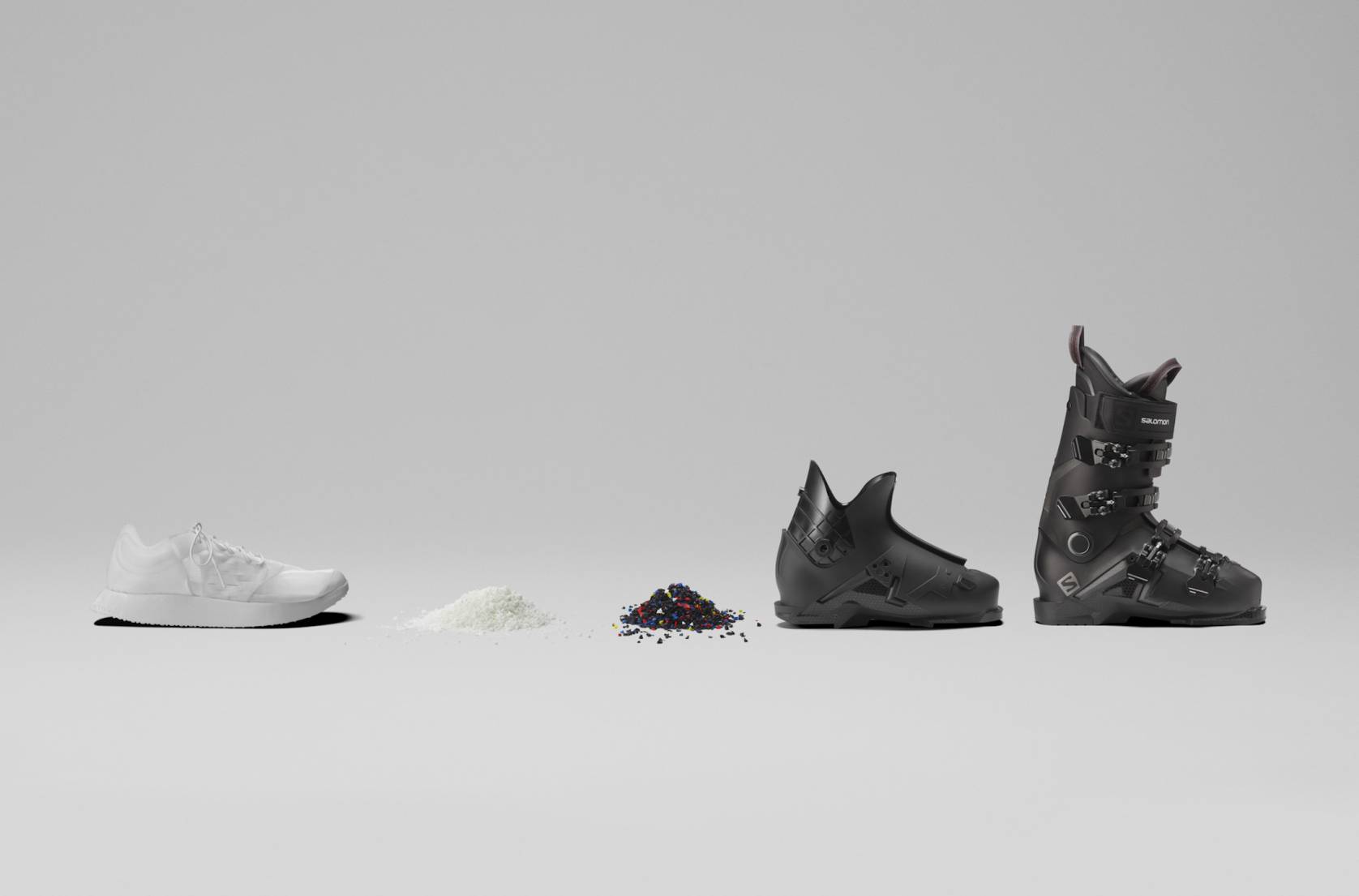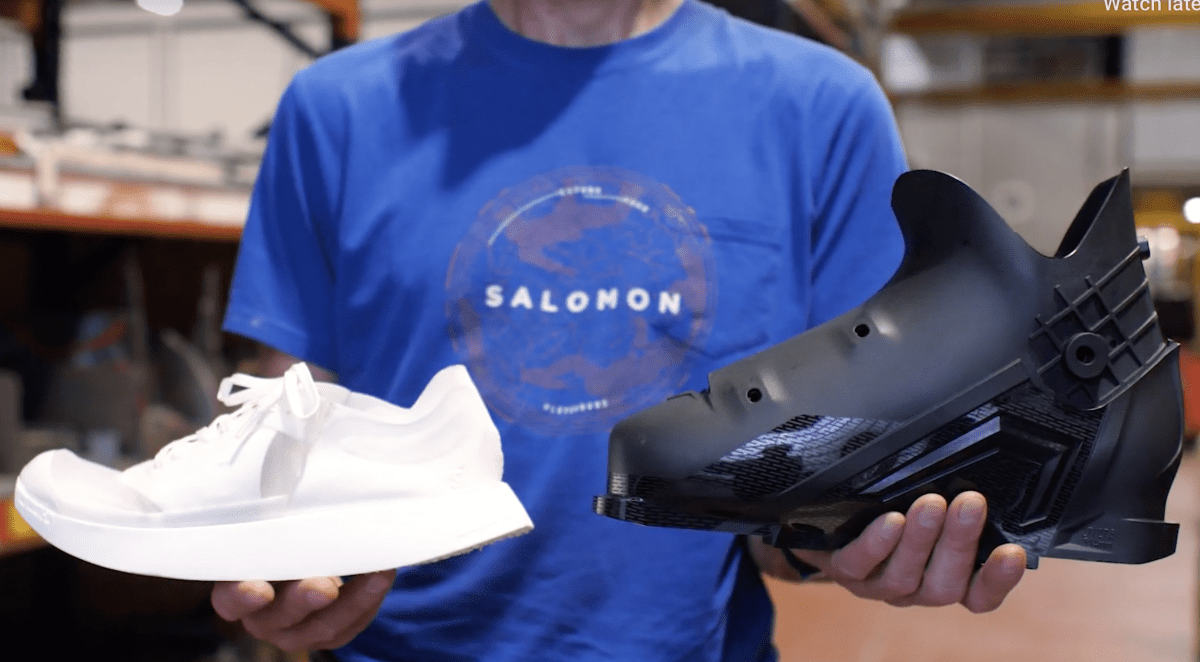
The snow sports industry as a whole has never applied the most sustainable methods or technologies, but with the growing push to change many companies are stepping up to the challenge. Just this past week Salomon announced details of a concept running shoe that can be recycled and turned into ski boot shells!
This new shoe is made entirely of thermoplastic polyurethane (the main material in ski boot shells) that can be ground down and added to the production of new boots. More than 18 months of research and development went into creating this shoe and Salomon plans to introduce this technology throughout their entire running footwear line for the 2021 year. Currently, the only shoe offered with this construction is a road running shoe but more models are on the way.
Last week Salomon also announced its new Play Minded Program, a company-wide sustainability initiative geared towards reducing the companies carbon footprint. The program is behind the development of the new concept shoe and has many other plans for the company. Included is the reduction of overall emissions by 30 percent by the year 2030, recycling or reuse of at least 70 percent of operations waste by 2025 and eliminating the use of perfluorinated compounds in all equipment by 2023 which are considered to be environmental pollutants.
You now may be asking yourself why this shoe is better for the environment than traditional running shoes and how it will stand up performance-wise. Traditional shoe construction relies on multiple different materials that are then stitched and glued together, thus making it nearly impossible to be fully recycled. Being that this new shoe is only made of one material the recycling process is much easier and more effective. As for performance, Salomon’s product engineers ensured that the upper portion would be breathable and the sole of the shoe offers cushioning that outperforms the classic EVA foam that is generally used.

This is an exciting and promising step towards a more sustainable future for the snow sports industry and will hopefully lead to many more advances in environmentally friendly technologies.